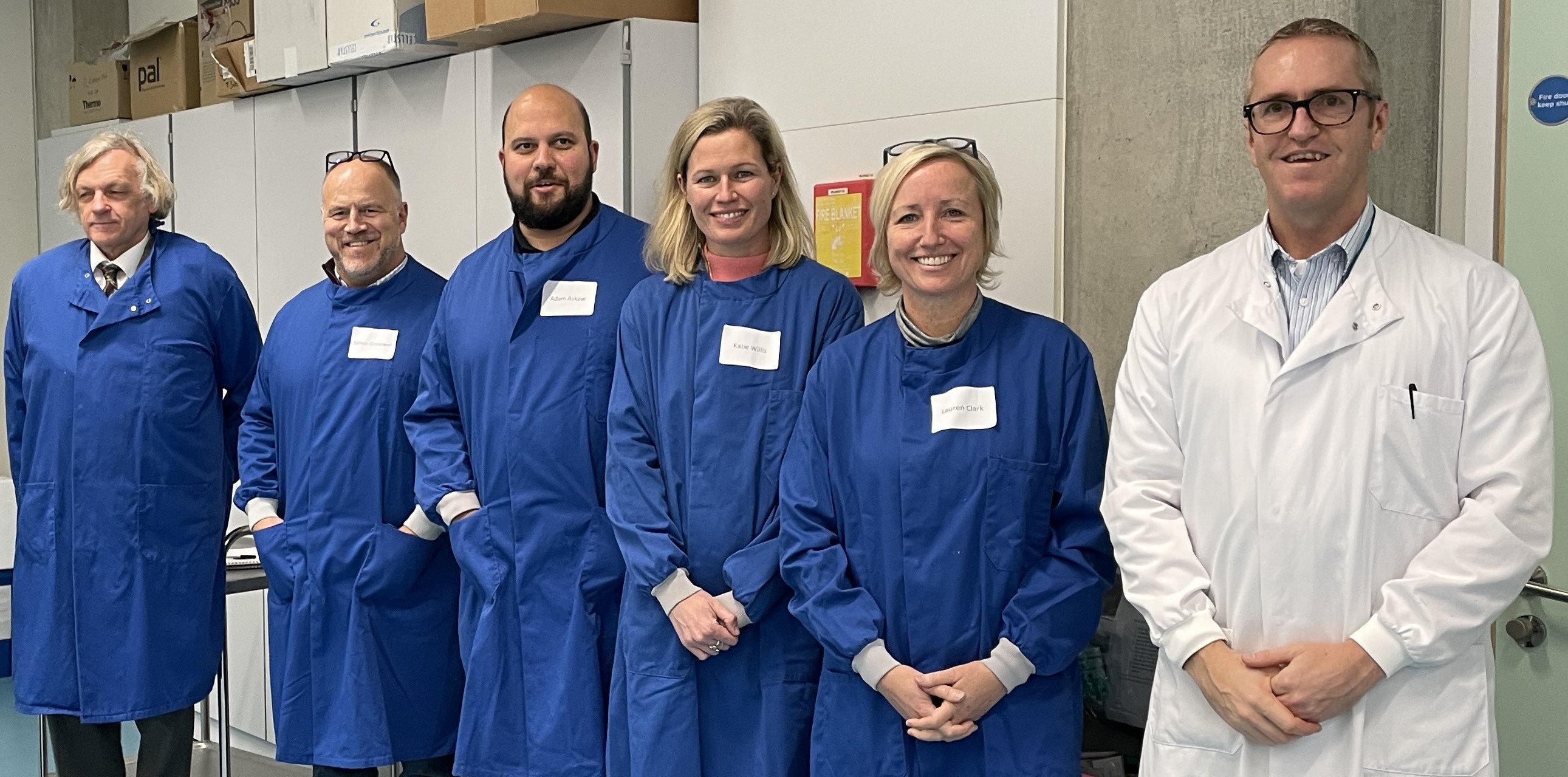
Key members of The Bob Willis Fund visited UEA in November to hear how their generous support is helping to revolutionise prostate cancer testing.
Despite being one of the most diagnosed cancers in the UK, the current method of checking for prostate cancer via prostate-specific antigen (PSA) tests can be unreliable. And if cancer is detected correctly, further testing to check for severity is invasive, painful and – because only a fraction of cancers are aggressive – in many cases unnecessary.
This can mean precious time is lost between gaining a precise diagnosis and starting treatment – which was what happened to Bob Willis, former England cricket captain. Bob was diagnosed with prostate cancer aged 66, but sadly, the PSA test was unable to pinpoint his cancer was aggressive until it was too late. After his death, his family set up the Bob Willis Fund to support prostate cancer research in the hope that a nationally accessible, accurate screening programme may be introduced to save lives.
The Bob Willis Fund is a supporter of UEA’s groundbreaking prostate cancer research. Professor Colin Cooper who leads the research team met with Bob’s widow, Lauren Clark, and his daughter, Katie Willis, in November to update on the lab’s most recent developments.
Prof Cooper began with an update on the innovative Tiger test which can tell doctors whether a cancer has the potential to be life-threatening, meaning monitoring or treatment plans can be put into place if needed.
Prof Cooper explained that, at present, men with raised PSA levels require invasive biopsies to diagnose their cancer but there is no way to tell which are aggressive ‘tiger’ cancers and which are harmless. Current treatments pose a risk of long-term complications such as impotency and incontinence. It is notable that in some studies, for every 17 men that undergo invasive procedures, only one actually needs this life-saving treatment.
Unlike breast cancer, which can be identified relatively simply using genetic testing, the severity of prostate cancer is more difficult to detect. Using the power of AI and complex mathematics, Prof Cooper and team have discovered a unique way to identify the severity of prostate cancer meaning men with ‘tiger’ cancers, and those who have the potential to become ‘tigers’ in the future, could be offered treatment more quickly, whilst men with harmless forms of the disease could avoid unnecessary treatments altogether.
This groundbreaking discovery is just one of several components currently being researched in the lab.
The second, the PUR test, has the potential to transform the early detection of prostate cancer by enabling men to carry out a simple urine sample at home and return to the lab by post.
The test measures biomarkers in urine that indicate the presence and severity of cancer, offering a dependable and painless way to check which patients need further treatment.
The newest research field in the lab is the recently-discovered link between certain bacteria and prostate cancer. Noticing anomalies in some of the samples being analysed, the lab team explored further and discovered several completely new types of bacteria.
Further research has found a correlation between these bacteria and aggressive cancers leading the team to theorise that this is somehow linked to the origins of the disease. Further work is ongoing to develop this theory further, with the hope that this may lead to life-saving treatments in the future.
The funding provided by the Bob Willis Fund will go towards setting up a diagnostic laboratory to enable UEA’s research team to carry out routine PUR and Tiger testing for men undergoing assessment for prostate cancer. To complete this process, Prof Cooper says that there is an urgent need for £1.15 million.
If you would like to lend your support to our prostate cancer research, please get in touch with us here in the Development Office
Find out more about UEA's prostate cancer research and how you can help

:focus(766x522:767x523))